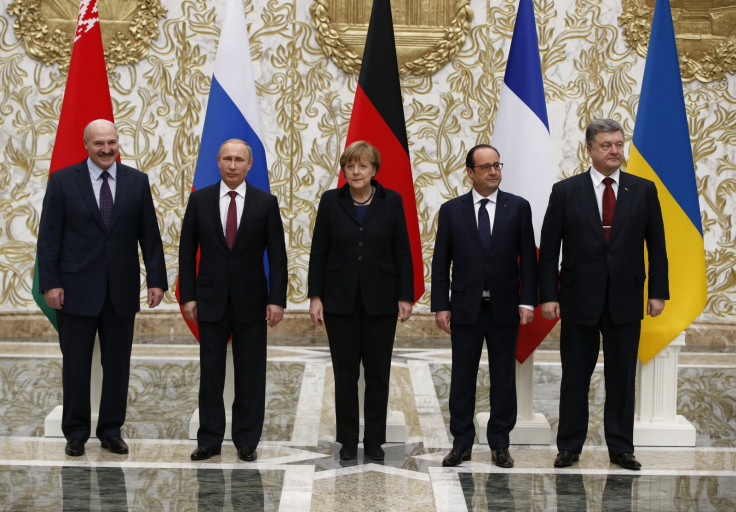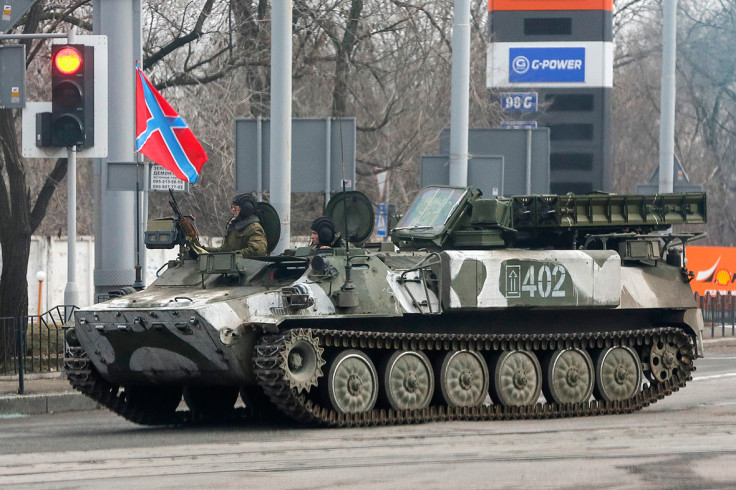Simon Heffer: Putin isn't afraid of the EU but will he risk all by taking on Nato in the Baltics?
Given the record of belligerence and dishonesty with which Vladimir Putin conducts his foreign policy – a record that caused the British Foreign Secretary, Philip Hammond, to offer a comparison between contemporary Russia and the behaviour of Hitler's Germany around the time of Munich – it would not be sensible to hold out too much hope that the Ukrainian ceasefire, which came into force on 15 February, will last.

An earlier version was disregarded within days and broke down completely. Even hardcore opponents of Putin in the West, looking at the depleted armed forces of so many western nations after the economic collapse that started in 2008, feel there is little to be done to contain Putin.
The best on offer seems to be a formal partition of Ukraine – the Crimea, annexed a year ago, has already been written off – and the subsequent reinforcement of the pro-European bulk of the country by arming it to the teeth and setting up Nato bases there. As one observer pointed out to me last week, this would give it a status similar to that of West Germany in the Cold War. All that seems to be missing is any hope of reunification.
Two other questions are also being debated, and it is well to consider them. The first is whether Putin, having had his expansionist ambitions momentarily checked in Ukraine, will attempt to assert himself somewhere else. Nerves are certainly on edge in the Baltic States. All the conditions for a Russian aggression appear to be in place.
First and foremost, there is a Russian minority in Latvia, Lithuania and Estonia that can make claims of having its rights ignored, and which Putin can allege he has a duty to protect. How he might set about protecting them is in itself an interesting point. There have already been cyber attacks, and with the economies of these countries – not to mention their administrations and communications – depending so much on the internet and digital technology, it is as good a means as any of bullying and intimidating another country.
Unlike Ukraine, the three Baltic States are also members of the European Union and of Nato. The European Union has long aggrandised itself by expressing the idea that it has a defence element. We shall see just how realistic that assertion is should the Russians try to filter their troops into the Baltics in the way they have done so successfully in Ukraine – even though Putin, a consummate liar, denies that has happened.
It is much to be doubted that Putin is afraid of anything the EU might offer to do to him, even if it went to the lengths of total sanctions on Russia: it would just make him all the more determined to create a diversion by attacking someone else.
Even he, though, might hesitate for a moment at the thought of what Nato's response might be to his attempting to do a Ukraine in one of the Baltic states. The old doctrine of an attack on one being an attack on all is fine in principle. What it would mean in practice, given that depletion of defence capability, is quite another matter.

America, the key player in Nato, has for the last year maintained that Ukraine is principally Europe's problem, and has put pressure on Germany especially to take the lead in sorting it out. But an attack on a Nato member in Eastern Europe could well be the moment for America to drop its isolationism and back a Nato force to protect that country.
If Putin gambles on that not happening he might make a mistake of the order that Nikita Khrushchev did in the Cuban missile crisis, a mistake that precipitated his fall from power.
That leads on to the second question, which is the assertion by some pundits that Putin has already dug his own grave in going as far as he has in Ukraine, and that it is only a matter of time before he is ousted. It's a nice idea, but it still seems hard to see how his demise would in practice be executed.
Russia recently cut the price of vodka, not a gambit habitually used in nations composed of happy, contented people. It is a clear sign that Putin is worried by the collateral effects of the economic downturn caused by the crash in world energy prices. If Russia were a democracy with a rule of law – which it isn't – such conditions would see the removal from office of the government. But the regime is so effective at locking up opponents, or finding even more extreme means of silencing them, that it will not be easy for Putin to be removed.
If it does happen, it would be more likely to be the result of a coup d'état by some of his fellow kleptocrats, aggrieved that things had not turned out quite so well for them as Putin had once promised. And such a train of events would not by any means ensure that things improved either in Russia, or in Russia's relations with the world. There is a long, a decidedly bumpy, road still ahead.
© Copyright IBTimes 2025. All rights reserved.






















